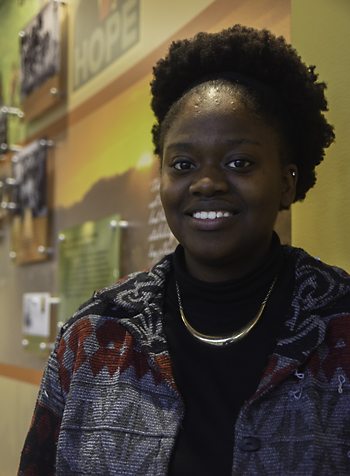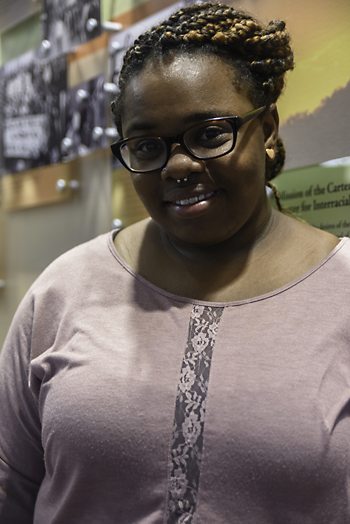
Alexandria Gaston
This past summer three Berea College students, Alexandria Gaston ’15, Laura Tate ’15, and Melissa Wills ’15 had the opportunity to intern for the Mary McCleod Bethune Council House in conjunction with the Carter G. Woodson home restoration project in Washington, DC. Berea students were specifically sought out for this position because of a standing relationship between the college and grandson of Carter G. Woodson, Paul Wells. Woodson is a 1903 graduate of Berea College and the Carter G. Woodson Center for Interracial Education was created in his honor. Its mission is “to promote social and cultural change through the transformative power of education that recognizes the enhancing values of all peoples of the earth.”
The internship lasted nine weeks and the students were vital in the creation of events for the centennial celebration of the Association for the Study of African American Life & History (ASALH). ASALH was founded in 1915 by Woodson and its mission is to promote, research, preserve, interpret and disseminate information about Black life, history and culture to the global community” (asalh.org). Another component of their internship consisted of being tour guides for the Mary McCleod Bethune home.
Wills said of her internship “I learned that although it may be difficult because there is great potential for walking alone in your journey, you are to do whatever it takes to stand up for what you believe in and fight for the cause(s) that you hold important.”

Melissa Wills
The life and work of Carter G. Woodson (1875-1950) is inspiring to many. He was born the first generation from slavery and was raised in a literate family. As a young man, he taught himself many things without the benefit of teachers. As he pursued higher education, he was met with segregation laws and American Jim Crow. However, through his determination Woodson was able to leave a legacy of learning. Woodson was an educator and one of the great things he did throughout his life was to promote the study of African American history. In 1926 he initiated the creation of Negro History Week in February, which eventually became what is known today as Black History Month.
Dr. Alicestyne Turley, director of the Carter G. Woodson Center and assistant professor of African and African American and general studies notes “having three of our students be a part of highlighting his [Woodson’s] legacy in addition to extending the Berea legacy and letting others know that it still exists was very moving for me.”
The internship for these students was inspiring and it fostered an environment where the students were able to take away a deeper understanding of self, a deeper understanding of community, and a more in depth view of what it means to serve.